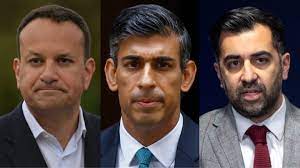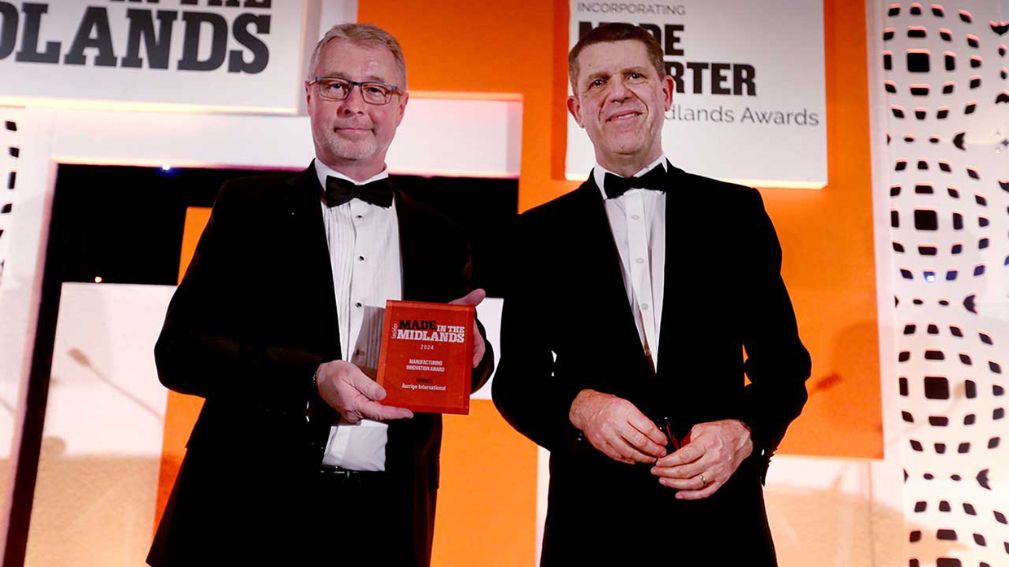With several South Asian politicians occupying top positions in UK political parties and local governments, the rise of South Asians in UK politics is undeniably evident.
It is crucial to have representation in all facets of society considering South Asians constitute a significant minority group in the UK. Yet, there has been a noticeable surge in South Asians holding key political leadership positions in recent years.
Does this now mean that the British government is not representative of the overall UK white-British majority population? The UK now has two South Asian leaders across England and Scotland – Prime Minister Rishi Sunak and First Minister of Scotland Humza Yousaf.
Are recent shifts in UK politics a mere coincidence, or can we explain the sudden rise of ethnic minorities representing the highest elected positions? On March 27, 2023, Pakistani-origin Humza Yousaf was elected to succeed Nicola Sturgeon as the SNP leader.
He was confirmed as First Minister the following day. Similarly, Rishi Sunak became the UK’s first Indian-origin Prime Minister, having initially become the Conservative Party leader.
As a result of these events, many people wonder if South Asians could soon dominate the political landscape of the UK. If that is the case, what does this mean for the rest of the diaspora?
Although South Asians have been represented in UK politics since the 19th century, it is not a recent phenomenon to be seen in modern Britain. According to historical records, Dadabhai Naoroji became the second Member of Parliament in 1892 after David Ochterlony Dyce Sombre, an Anglo-Indian, in 1841.
Naoroji served an impressive term as an MP, however, Sombre’s story was short-lived because he was expelled from Parliament due to corruption 10 months after being elected. As one of the presidents of the Indian National Congress, the main nationalist organisation that fought for India’s independence, Naoroji started his political career in his native India.
Naoroji relocated to the UK as a merchant. Like many upper-class Indians, they did so to study and work because of the close trading ties with the British during the British Empire.
Although originally coming in last in the 1886 election, he ran as a Liberal Party candidate in Finsbury Central in 1892 and joined the Gladstone government. He promoted pensions for the old, the abolishment of the House of Lords, Irish Home Rule, and the right to vote for women as a representative of the South Asian population who, according to British imperialism, had no democratic governance.
But it wasn’t until 2010 that Rushanara Ali and Priti Patel became the first South Asian women to hold elected office in the UK. This is due to laws that prevented women from both voting and running for office.
Due to these factors, there was little realistic South Asian female representation in politics until the 21st century. The acceptance of Black and South Asian people in Britain has been slow and steady.
Although South Asians have been present in Britain for more than 200 years, they have never had any official representation throughout the country’s history. It wasn’t until 1987 that four ethnic minority members were elected to the House of Commons.
South Asians now hold just over 5% of the seats in the House of Commons, accurately reflecting the demographics of the entire UK, and this launched a new wave of South Asian individuals in Parliament. The emergence of South Asians in some of the top political positions surged at the turn of the 21st century.
Sadiq Khan, for instance, made history by becoming London’s first South Asian mayor. Sajid Javid and Priti Patel are also the first members of the South Asian diaspora to hold cabinet positions.
Alok Sharma and Suella Braverman have joined the political ranks. As the first South Asian and Hindu man to hold the position, Rishi Sunak’s election as Prime Minister also represents an important step in the advancement of South Asians in Britain.
It is accurate to say that Rishi Sunak’s election as PM marks a historic occasion and will be celebrated by many South Asians as a major victory for the diaspora. But it raises the question of whether the ascent of South Asian MPs genuinely reflects the rest of the South Asian community in the UK.
Does this reflect South Asian voters and their political ideals beyond just skin colour? Compared to previous PMs, many British South Asians in Britain will identify more with Sunak but the diaspora as a whole will find it challenging to relate to Suank beyond faith and ethnicity.
Many are therefore speculating as to whether South Asian politicians represent them and the diaspora and have their best interests at heart. Sunak, the son of a doctor and a pharmacist, graduated from Oxford University, amassed wealth in the financial sector, and married Akshata Murthy, the daughter of an Indian billionaire.
Hence, unlike the majority of the British South Asian diaspora, Sunak comes from a background of great wealth. The socioeconomic divides in the UK are evidence that it is still a severely unequal country.
Black people and British Asians are three times more likely to make less than 60% of the median income than the general population. British households of Pakistani and Bangladeshi descent make roughly 16% less than their white British counterparts.
Yet, research has revealed that the Indian population is the most prosperous ethnic minority group in the UK. A report from the Wire claimed that 24% of white British homes fall into the highest group, compared to 25% of Indian households, and that Indian households earn 16.5% more than their white counterparts.
The migration patterns of the ethnic groupings have created inequities for the British South Asian community. According to the UK Census from 2011, about 40% of the diaspora arrived in the country before 1981.
Some people in the UK can relate to this migration since they had great economic opportunities growing up, like the South Asian political elite. But the same narrative does not apply to several South Asian migrants, many of whom experienced poverty in Pakistan and Bangladesh.
Bangladeshi migrants fled the harm inflicted by the 1971 Bangladesh Liberation War, while Pakistani migrants came from impoverished areas like Azad Kashmir. The “Nationality and Borders” law, which would affect the increasing number of individuals crossing the English Channel from war-torn nations, was welcomed by Priti Patel.
Suella Braverman’s decision to uphold Patel’s Rwandan immigration regulations has served as evidence of the persistence of this particular immigration policy. A five-year project called the “Migration and Economic Development Partnership” enables the UK to send individuals to Rwanda who would otherwise apply for asylum here.
This approach has recently come under fire for being “seriously unfair” and running the possibility of expelling asylum seekers from the UK “without effective access to the court”. Concerning Rwanda’s safety, activist organisations and charities claim that the plan violates laws about human rights.
The people who opposed more immigrants coming to the UK are, ironically, the same ones who benefited from this system. The current South Asian political dominance has been met with varied reactions from the British South Asian community, especially after Sunak was elected PM.
Insisting that “we are breaking barriers” and that it is a “wonderful depiction of our people” several have pointed to the history of the British colonisation of India. On the other hand, others have said that Sunak and other members of the government do not speak for the community.
This is crucial to understand while looking at Sunak’s political career. As one of the wealthiest members of the House of Commons, he constantly supported lower social benefit spending, notably when he was chancellor and eliminated the Universal Credit boost of £20 per week, which helped some of the poorest families survive the Covid-19 pandemic.
The UK political landscape has become more racially diverse in recent years, as seen by Liz Truss’ recent appointment of the most diverse government cabinet in history and Rishi Sunak’s election as PM. The ascent of South Asians in UK politics has been hailed as a turning point in British South Asian history compared to the much talked about colonialism era.
It is reasonable to assume that more South Asian political figures will enter the ranks of the UK’s political sphere. Yet, the South Asian diaspora continues to doubt whether the rise of South Asians in political leadership positions is a method of ‘token’ picking to plaster diversity across political parties which are failing to form a strong identity in the current political climate.
With both Rishi Sunak and Humza Yousaf entering into office through leadership elections of their parties rather than being democratically elected by the public – how does this reflect on the credibility of their politics? In light of this, does the UK political elite’s use of identity politics imply that South Asian representation does not go beyond one’s skin tone?












